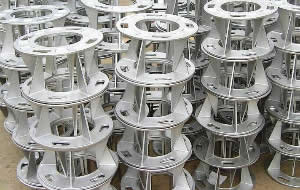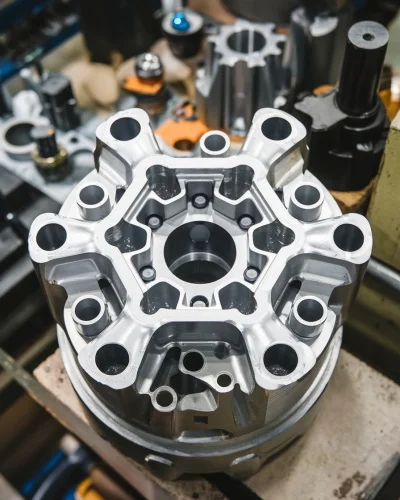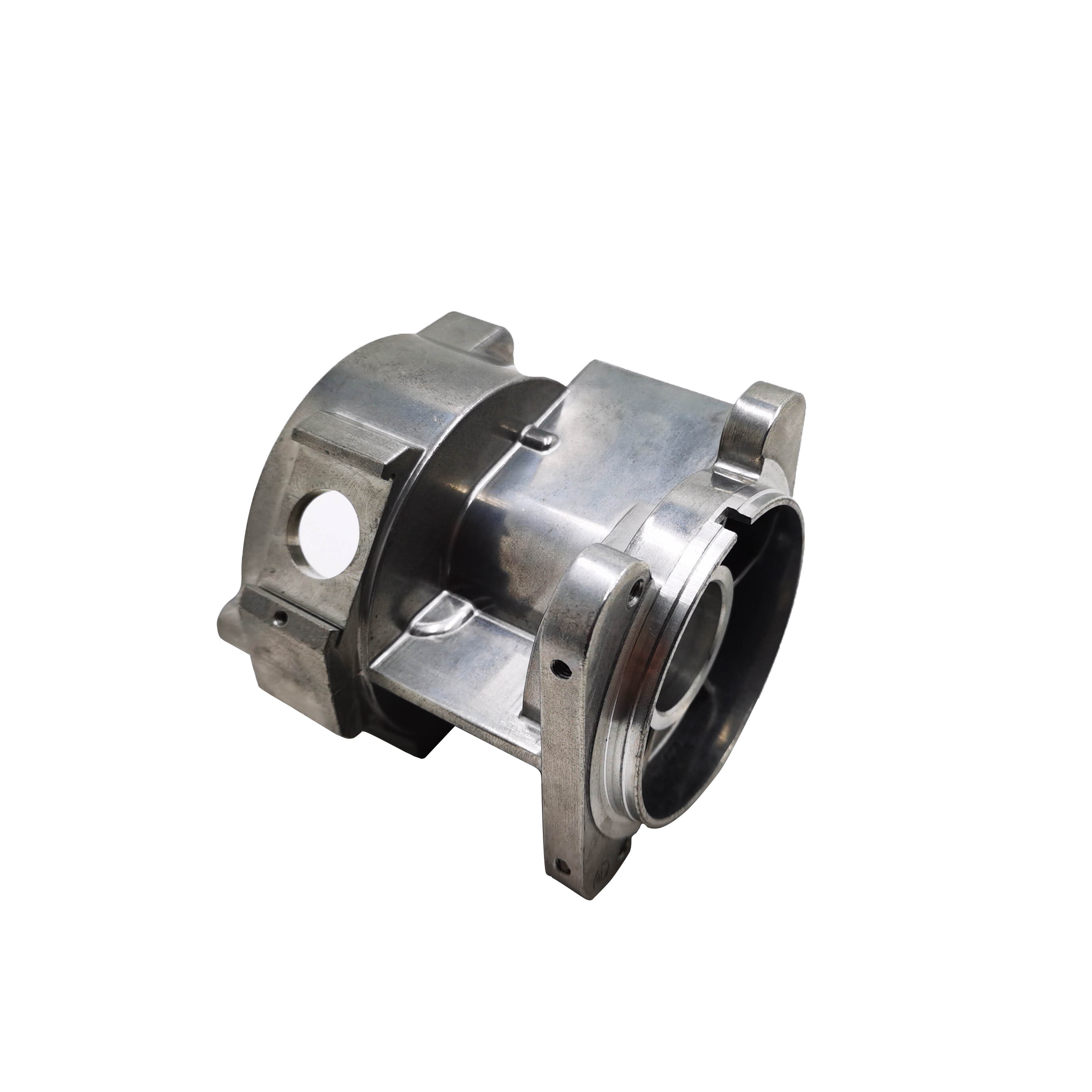The impact of aluminum casting in creating lightweight metal parts
Wiki Article
The Role of Light Weight Aluminum Foundries ahead of time Lightweight Production Solutions
Light weight aluminum foundries substantially contribute to the evolution of light-weight production options. Their cutting-edge spreading innovations generate high-strength, light-weight parts vital for industries like automobile and aerospace. This advancement not only improves product efficiency however likewise advertises sustainability via making use of recycled materials. As these factories adapt to arising techniques and technologies, they pave the method for future growths in producing performance and ecological responsibility. What lies ahead in this transformative trip?The Advantages of Lightweight Products in Production
As markets significantly seek effectiveness and sustainability, the fostering of lightweight products in manufacturing has emerged as a necessary method - Aluminum Foundry. These materials, particularly aluminum and compounds, supply numerous benefits that enhance production processes and item efficiency. Mostly, their lowered weight adds to decrease power intake during transportation and procedure, causing substantial expense savingsFurthermore, lightweight materials facilitate the design of even more facility geometries, permitting better advancement in product advancement. This adaptability often results in improved performance and performance, accommodating the evolving needs of contemporary customers.
Furthermore, making use of lightweight materials can enhance the durability of items due to their resistance to corrosion and exhaustion. This sturdiness not only minimizes upkeep prices but likewise supports sustainability initiatives, as longer-lasting products add to less waste. To sum up, the benefits of light-weight materials are crucial in driving efficiency, development, and ecological duty in production.
Advancements in Light Weight Aluminum Casting Technologies
Current developments in light weight aluminum spreading innovations are changing the production landscape, especially in the manufacturing of lightweight parts. Advancements such as high-pressure die casting and vacuum cleaner pass away casting have greatly enhanced the accuracy and surface finish of aluminum parts - Aluminum Casting Company. These approaches permit the creation of complicated geometries while decreasing product waste and improving mechanical homes
Additionally, the execution of real-time monitoring systems ensures top quality control throughout the spreading procedure, bring about more regular item end results. Jointly, these developments not just enhance the efficiency of aluminum components but also support the industry's change in the direction of even more sustainable production techniques.
Applications of Light Weight Aluminum Components in Various Industries
While light weight aluminum parts have actually long been used in various industries, their flexibility and light-weight buildings remain to drive cutting-edge applications throughout fields such as automotive, aerospace, and building and construction. In the automotive industry, aluminum is progressively made use of for engine blocks, wheels, and body panels, improving fuel performance and performance. Aerospace manufacturers leverage light weight aluminum for aircraft structures and parts, capitalizing on its strength-to-weight proportion to enhance fuel economic climate and payload ability.In the construction market, aluminum is preferred for window structures, roofing, and structural elements, offering resilience and resistance to rust while decreasing overall structure weight. Additionally, the electric and electronics markets take advantage of light weight other aluminum's conductivity and light-weight nature, utilizing it in circuitry, rooms, and heat sinks. These varied applications highlight the critical function of light weight aluminum parts, which not just satisfy market needs however additionally add to developments in product style and functionality across numerous areas.
Sustainability and Energy Efficiency in Light Weight Aluminum Foundries
The light weight aluminum factory industry plays a vital duty in promoting sustainability and power effectiveness, especially as demand for lightweight parts proceeds to grow throughout different fields. Factories are significantly taking on eco pleasant practices, such as making use of recycled light weight aluminum, which considerably minimizes energy usage and greenhouse gas discharges compared to primary aluminum production.Furthermore, advancements in casting technologies improve power effectiveness by enhancing the melting processes and lowering waste. Strategies like die spreading and investment spreading permit exact material use, minimizing excess and scrap.
Additionally, lots of shops are buying renewable resource sources to power procedures, better reducing their carbon footprint. Implementing energy monitoring systems allows foundries to keep track of and enhance energy use, ensuring they operate at peak performance.

Future Fads in Lightweight Production Solutions
How will arising technologies form the future of light-weight manufacturing options? Developments such as sophisticated products, automation, and additive production are set to redefine production procedures. The assimilation of wise production modern technologies, consisting of the Net of Points (IoT) and artificial knowledge (AI), will certainly enable real-time monitoring and optimization, improving effectiveness and lowering waste.
As sustainability remains to be a critical issue, lightweight solutions will increasingly concentrate on recycling and reusing products, straightening with round economic climate concepts. This evolution in lightweight manufacturing will certainly not just enhance product efficiency but additionally add to environmental objectives, guaranteeing that the industry stays competitive in a rapidly changing market landscape.
Regularly Asked Questions
Just How Do Aluminum Foundries Ensure Quality Assurance in Manufacturing?
Light weight aluminum foundries ensure quality assurance in manufacturing through rigorous screening, standard procedures, and continuous monitoring - Aluminum Foundry. They carry out innovative technologies and visit this site experienced employees to keep uniformity, reduce flaws, and satisfy sector requirements throughout the manufacturing processWhat Are the Main Tests Dealt With by Light Weight Aluminum Foundries?
Aluminum shops encounter difficulties such as varying raw material costs, maintaining production efficiency, guaranteeing constant top quality, adapting to technical innovations, and official statement meeting environmental policies, every one of which influence their general functional effectiveness and competition in the market.Exactly How Does Light Weight Aluminum Recycling Impact Foundry Operations?
Aluminum reusing considerably improves shop operations by minimizing resources prices, decreasing energy intake, and reducing environmental effect. This lasting practice enables shops to boost performance while fulfilling enhancing need for lightweight, high-performance aluminum products.What Skills Are Needed for Workers in Aluminum Foundries?
Employees in light weight aluminum foundries need skills in metallurgy, machining, quality assurance, and safety practices. Efficiency in operating machinery, understanding alloy residential properties, and analytical are likewise vital for effective production and preserving high safety and security criteria.Just How Do Aluminum Foundries Deal With Waste Management?
Light weight aluminum factories handle waste via reusing scrap steel, using effective waste segregation methods, and sticking to environmental laws. They apply sustainable practices to reduce garbage dump payments, guaranteeing that harmful products are dealt with responsibly.Aluminum foundries significantly contribute to the advancement of light-weight production options. Current developments in aluminum casting innovations are reinventing the production landscape, specifically in the production of light-weight components. While light weight aluminum parts have actually long been made use of in various markets, their convenience and lightweight buildings continue to drive innovative applications across markets such as automotive, aerospace, and building. Furthermore, the electric and electronic devices sectors profit from aluminum's conductivity and light-weight nature, utilizing it in circuitry, rooms, and warm sinks. The light weight aluminum foundry industry plays a crucial duty in advertising sustainability and energy efficiency, particularly as demand for light-weight components proceeds to expand across various markets.
Report this wiki page